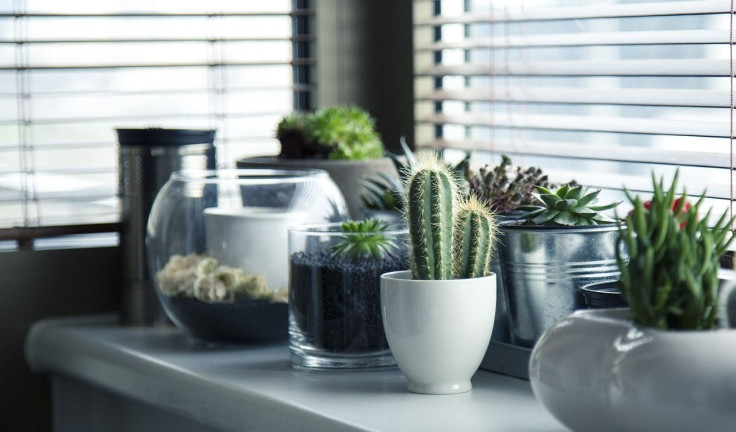Workplace Essentials For Better Health: 8 Things You Need

Chances are you spend most of your day at a desk job. While you avoid certain health hazards by not working in manual labor, sitting in front of a computer screen for at least eight hours a day isn't exactly a healthy alternative. Whether you work from home or sit behind a desk, here are ways to make your office a better place for your health and well-being.
1. Clear the air
Office environments are known to trigger occupational allergies such as sensitivities to paint, office furniture or chemicals in the carpet. Even without any physical symptoms, the stuffy air can put a damper on your brainpower. A recent study at Harvard University claims that offices with great ventilations and small levels of air pollutants were linked to better performance levels.
2. Try a standing desk
Ask if your workplace allows it as switching to a standing desk will help you move more throughout the day and help you sit less. While being on your feet all day does lead to aches and pains, you can use a desk setup that will allow you to adjust your workspace. You can also substitute an exercise ball as your chair if a standing desk in not an option.
3. Keep a Water Jug at Your Desk
According to Glozine lifestyle news, water will not only improve your skin but also prevent headaches during dry, warm temperatures and suppress your appetite. Water is essential to keeping your liver and kidneys functioning properly as it flushes the toxins out of your system. Pick a water jug or bottle that is at least 32 ounces as this will keep you hydrated throughout the day.
4. Place your desk near the window
Studies from Northwestern University show that people with windows in their office are more physically active and they get better sleep than those without it. Get as much natural light as possible by sitting near a window. Being exposed to natural daylight will help keep your stress levels down as well as your circadian rhythm working in proper condition. Working with natural light will keep you feeling energized and motivated throughout the day.
If you don’t have a window near your desk, consider a cool, bluish light for your office lighting as this will help with analytical thinking. Warmer lights are better for social interaction with others. Choose a desk lamp rather than an overhead light as it may help reduce eyestrain.
5. Use Aromatherapy
Skip air fresheners and candles that use artificial scents as some even release irritating chemicals. Go for an essential oil diffuser instead as these deliver a natural, subtle aroma. The smell of citrus alone can improve your memory and think while lifting your spirits. If most scents are too strong for you, try something lemony instead.
6. Only Keep Healthy Options at Your Desk
The vending machine can be tempting during your afternoon hours. Skip this high-calorie temptation by bringing your healthy snacks at work. Try fresh fruits, veggies, yogurt, and nuts to keep you satisfied. Whole fruits such as oranges and apples are great with nuts, especially since fruit contains simple sugars that should be eaten with other healthy foods. An apple with almond butter or carrot sticks with hummus is a filling and healthy snack.
7. Take walks during your break
Start a walking or jogging routine during your breaks or after work. Getting your co-workers to join will also promote healthy living to the entire office. A simple 5-10 minute walk at least three times a day will keep your body moving and metabolism running.
8. Add a Plant
Studies show that office plants have been proven to increase productivity by 38%, creativity by 45% and overall well-being by 47%. Plants will also help clean the office air, lessen static and office noise. Make sure to choose a plant that works well under low-light conditions and indoors. The spider plant, peace lily, and aloe plant are great options for an office plant.
Having an office job doesn’t mean you have to give up on living a healthy lifestyle. These small changes to your workstation and daily routine will help strengthen your health throughout the day.
Ella James is an aspiring author who is pursuing Health Services Administration degree from St. Petersburg College. She is an active contributor to Consumer Health Digest. Her interests include reading and writing about health, fitness, and wellness information. Get connected with her on Facebook and Twitter.
Published by Medicaldaily.com



























